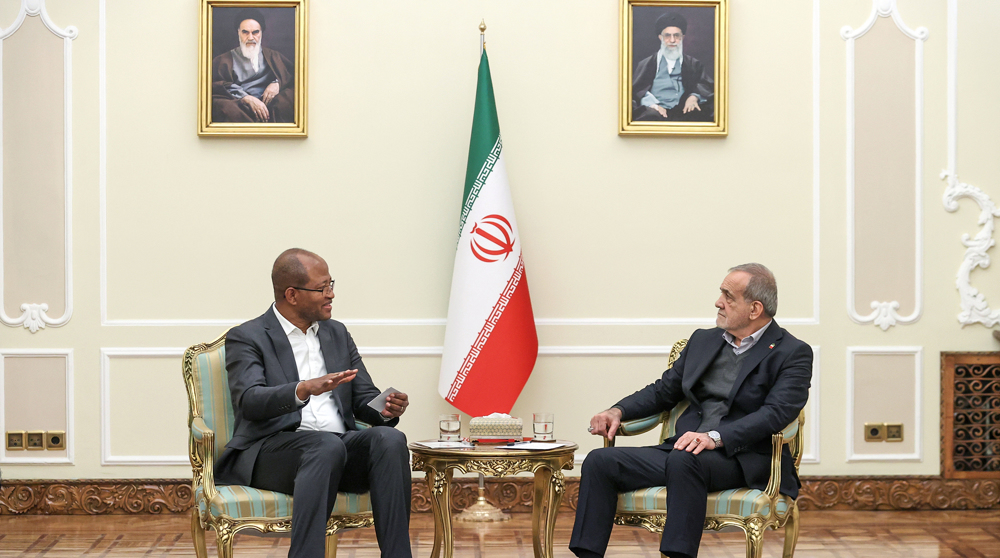Iranians not attending Hajj due to Saudi obstructionism: Official
The head of Iran’s Hajj and Pilgrimage Organization says Iranians will not attend this year’s Hajj, blaming Saudi Arabia for creating obstacles in the way of Iranians seeking to perform the ritual.
In an interview with Press TV on Monday, Saeed Ohadi explained reasons why Iran has finally decided not to send its Hajj pilgrims to Mecca this year.
He noted that after lengthy negotiations between the two sides, the government in Riyadh added 11 articles to a memorandum of understanding signed between Iran and Saudi Arabia, which were not there in last years’ Hajj agreements between the two countries.
Ohadi noted that the new articles added by the Saudi government, which tried to impose new restrictions on Iranian Hajj pilgrims, made it impossible for the Islamic Republic to accept the whole agreement as a result of which Iran will not be sending Hajj pilgrims to the holy city of Mecca this year.
Explaining Riyadh's new restrictions and conditions for Iranian pilgrims, Ohadi enumerated them as follows:
Saudi's firm resolve not to accept Iranian pilgrims
The Iranian official said, “we had gone to Saudi Arabia to sign an agreement,” but the Saudi officials were apparently bent on not accepting Iranian pilgrims and were just trying to buy time through negotiations.
Ban on raising Iran’s flag
Ohadi noted that among major reasons behind the cancellation of this year’s Hajj by Iran was Saudi’s ban on raising the Islamic Republic’s flag over buildings housing Iranian pilgrims as well as certain crowded routes aimed at guiding Iranians.

Restrictions on number of Iranian clinics
The Iranian official said another negative condition set by Saudis was to “impose restrictions on the number of Iranian clinics in Saudi Arabia during the Hajj season, and limiting use of various medicines by Iranian pilgrims in Saudi Arabia.”
Saudi Arabia’s request for Iranians to wear electronic wristbands
The Iranian official stated that Saudi Arabia had ordered Iranian pilgrims to wear “electronic wristbands.”
“Of course, we had designed a similar wristband to facilitate identification of pilgrims, but Saudi Arabia clearly noted that it would design the wristbands itself and would not allow the Iranian side to use its own wristbands.”

The Saudi officials, Ohadi noted, had also banned certain ceremonies and prayer gatherings by Iranian pilgrims, which was another reason why Iran could not give in to Saudi Arabia’s conditions.
Lack of political courtesy
Ohadi said Saudi Arabia’s disregard for political courtesy was also to blame for canceling the ritual, saying Saudi officials failed to adhere to the good manners even during the negotiations with the Iranian side aimed at discussing arrangements for this year’s Hajj pilgrimage.
Saudis showing disrespect for holy Qur'an
The Iranian official further stated that Saudi officials show disrespect for those versions of the holy Qur'an that are printed in Iran and while snatching them from Iranian pilgrims throw them aside in a disrespectful manner.

An Iranian delegation recently traveled to Saudi Arabia at the official invitation of new Saudi Minister of Hajj and Umrah Mohammad Saleh bin Taher Benten to discuss arrangements for this year’s Hajj pilgrimage months after a deadly crush in Mina which killed hundreds of pilgrims last September.
Saudi Arabia's Hajj Ministry said on Saturday it had met a number of Iran's concerns but Ohadi said Riyadh was refusing to accept conditions to guarantee the safety and dignity of Iranian pilgrims.
Hundreds of people lost their lives in the deadly incident in Mina which took place on September 24, 2015 when two large masses of pilgrims converged at a crossroads during the symbolic ceremony of the stoning of Satan in Jamarat.
Saudi Arabia claims nearly 770 people were killed in the incident, but officials at Iran’s Hajj and Pilgrimage Organization say about 4,700 people, including more than 460 Iranian pilgrims, lost their lives.
The AP record says more than 2,400 pilgrims died in the incident.
Trump admin. asks transportation body to share passenger names in expanded deportation push: Report
UN sounds alarm over record Palestinian displacement, surge in illegal settler attacks in West Bank
Iran emerges as global fertility hub, blending innovation, research and scientific excellence
VIDEO | Can Europe save Ukraine?
VIDEO | EU freezes Russian assets
Iran’s PMI slips 0.8 points to 49.8 in November: ICCIMA
Two US soldiers, interpreter killed in surprise attack in Syria: CENTCOM
VIDEO | Epstein in Africa










 This makes it easy to access the Press TV website
This makes it easy to access the Press TV website